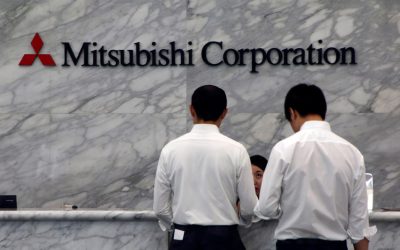The $2 trillion Cares Act is meant to help small businesses. But one segment of this group can’t access $350 billion in loans that are meant to help them ride out the Covid-19 recession.
The Association for Corporate Growth, a professional association that represents middle-market companies, wants to change that. The ACG is asking Congress to waive rules that prevent companies owned by buyout shops from accessing the Small Business Administration cash.
In an April 9 letter to Senate Majority Leader Mitch McConnell (R-Ky) and House Speaker Nancy Pelosi (D-Calif), the ACG said so-called affiliation rules, part of an effort to prevent job losses known as the Paycheck Protection Program, are too broad and unfairly prevent many small businesses from receiving the assistance they need.
“To exclude a critical segment that powers middle market jobs is simply unexplainable,” Thomas Bohn, ACG’s CEO and president, told Barron’s. “Private-equity groups operate just like any other business whether public or privately owned.”
The Cares Act, passed in late March, includes the Paycheck Protection Program, which empowers the SBA to provide $350 billion to struggling companies. The agency will forgive the loans if the companies keep their staff on the payroll until June.
The hitch is that companies seeking the PPP loans must have 500 employees or fewer. The affiliation rules treat each private-equity firm, and their portfolio companies, as one entity. If the number of employees at a firm, and its companies, surpasses 500, then they can’t access the loans. This means companies owned by many middle- or lower-market private-equity firms can’t get SBA help. (The PPP includes an exemption for franchises owned by private equity , which are allowed to access the loans.)
Scott Pearson, a partner with the law firm Manatt, Phelps & Phillips, said the intent of the PPP isn’t to benefit the companies themselves, but to stop them from laying off their employees. “The whole goal is to save people’s jobs,” he said.
Private equity has long suffered from an image problem. It typically comes under attack during election years. Critics charge that these investors make millions in profits from cutting jobs and closing the businesses they claim to improve. Private-equity firms are also believed to have the funds to back their companies if they encounter problems.
Some in the private-equity world are troubled by the exclusion. “Not including all jobs and all companies in the Cares Act is inequitable,” said Robert Morris, founder of Olympus Partners, a middle-market private-equity firm. “The notion that if a company is owned by one type of owner, instead of another, determines whether or not you would help their employees if the company is troubled is perverse. Is that any different than a doctor turning away patients due to her view of their parents?”
Private equity is a major provider of jobs, according to the ACG. The Chicago-based group defines the middle market as those companies that produce up to $1 billion of revenue. The middle-market sector is responsible for 45 million jobs, 15 million of them at private- equity portfolio companies, Bohn said.
Efforts to change the affiliation rule failed last week but Bohn hasn’t given up hope. “It’s not over,” he said.
Bohn hopes the Senate will amend the affiliation rule, or provide some flexibility, as lawmakers consider adding another $250 billion to the PPP loan program. He noted that in a March 31 letter, Pelosi urged Treasury Secretary Steven Mnuchin and Jovita Carranza, administrator of the SBA, to allow venture capital to access the PPP loans.
“I know that the intent of the Cares Act was really positive,” Bohn said. “This is a huge oversight and they need to do the right thing.”
Source: Barrons
Can’t stop reading? Read more
Top private equity news of the week
Top private equity news of the week Soho House, the global private members’ club and hotel group,...
Audax turns to Blackstone as Justrite seeks $700m private credit lifeline
Audax turns to Blackstone as Justrite seeks $700m private credit lifeline Audax Private Equity is...
Mitsubishi takes stake in RRJ-backed Fullerton Health to fuel Southeast Asia growth
Mitsubishi takes stake in RRJ-backed Fullerton Health to fuel Southeast Asia growth Mitsubishi...




